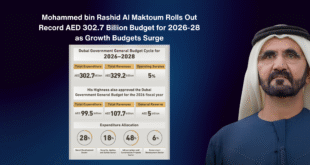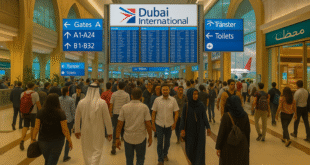Table of Contents
Introduction
Saudi foreign real estate ownership is dominating headlines after the Kingdom’s breakthrough law poised to open property markets to non-Saudis in 2026. This move marks the biggest shift in Saudi real estate history and could reshape Gulf investment, housing, and international confidence. This blog unpacks exactly what Saudi foreign real estate ownership means for global investors, regional rivals, and anyone eyeing the future of urban Saudi Arabia.
Background: Saudi Foreign Real Estate Ownership and the New Era
The story behind Saudi foreign real estate ownership reflects a deliberate shift from decades of restriction toward Vision 2030’s open, globally connected goals. Until now, Saudi foreign real estate ownership has been limited to uniquely structured routes like Premium Residency, and only certain types of investors could qualify. But the new law, approved July 8, 2025, signals a strategic pivot to attract foreign capital and diversify away from oil reliance.
The historically lagged behind neighbors like the UAE, which became a benchmark for attracting residency, investment, and global talent. Now, with a decision that aligns with the GCC’s broader real estate liberalization trend, the stakes for growth, jobs, and social transformation have never been higher.
Main Updates / Core Insights: Saudi Foreign Real Estate Ownership Law Explained
What Does the Saudi Foreign Real Estate Ownership Law Change?
The Saudi foreign real estate ownership law fundamentally expands rights for non-Saudis—both individuals and corporations—to buy and invest in property in the Kingdom. Previously, major projects and most urban real estate were restricted or required complex structures for foreign ownership. As of January 2026, the law lets foreigners buy commercial and residential real estate in designated zones, including high-profile targets like Riyadh and Jeddah.
In Mecca and Medina, Islamic holy cities, is allowed under more controlled frameworks, usually as long-term leases for non-Muslims, while tighter censoring applies to preserve their religious status.
Key Stats & Market Impact
- Minimum Investment: Some property types require minimum capital (typically SAR30 million for commercial projects), with a five-year build mandate to discourage speculation and ensure real economic contribution.
- Transaction Tax: Property purchases by foreigners are subject to a 5% real estate transaction tax, regulated and registered digitally through the Real Estate General Authority.
- Financing: Expatriates can access Islamic-compliant mortgages provided by local banks, normally up to 85% loan-to-value with standard down payments and employment conditions.
- Residency Routes: Buying a property over SAR4 million may qualify foreigners for Saudi premium residency, offering indefinite stay, work and sponsorship benefits for families.
- Implementation: Final executive regulations, including precise zones and procedures, will be announced within six months of publication, using open consultation to gather public and investor feedback.
Safeguards and Controls
The rights are balanced by strong controls to avoid speculation, market bubbles, or threats to social cohesion. Review periods, capital thresholds, and residency requirements ensure the policy delivers sustainable growth—in direct support of Vision 2030’s blueprint for a diverse, high-skilled, and globally competitive economy.
Regional Impact: Ripple Effects of Saudi Foreign Real Estate Ownership
Saudi foreign real estate ownership isn’t just a landmark for the Kingdom—it triggers a new competitive dynamic across the Gulf. The UAE’s early lead in open-property regimes fueled Dubai’s meteoric rise; now, Saudi foreign real estate ownership sets the stage for the GCC’s next investment race.
- UAE: Analysts predict renewed competition as international capital considers Saudi foreign real estate ownership for long-term returns, potentially drawing demand from Dubai, Abu Dhabi, and Sharjah, which have benefited from open-door policies.
- Qatar, Oman, Kuwait, Bahrain: These markets will likely review their foreign ownership rules to boost their appeal, learning from Saudi foreign real estate ownership policy to refine visa, tax, and residency incentives.
- Investor flows: International developers, retirees, and digital nomads now look to this for diversification—and first-mover advantages in prime zones could spark mini property booms in Riyadh and Jeddah.
Read more about the Gulf’s megaprojects and recent real estate trends in our [Gulf Urban Transformation] and [Vision 2030 Policy Updates] articles.
Conclusion: A New Era for Saudi Foreign Real Estate Ownership
This is game-changing: starting January 2026, non-Saudis gain unprecedented access to one of the world’s most dynamic property markets, underlining the Kingdom’s new global ambitions. With robust controls, digital transparency, and links to premium residency, Saudi foreign real estate ownership advances Vision 2030—and sets a new standard for Gulf investment opportunity. As implementation details roll out, investors should prepare, stay informed, and seize unique opportunities in the world’s next real estate hotspot.
External Authoritative Sources:
- [Saudi Arabia Enacts New Real Estate Foreign Ownership Law]
- [Khaleej Times: Foreigners can own property from January 2026]
Internal Links (The Credible Story):
 The Credible Story Trending stories that keep you hooked
The Credible Story Trending stories that keep you hooked




